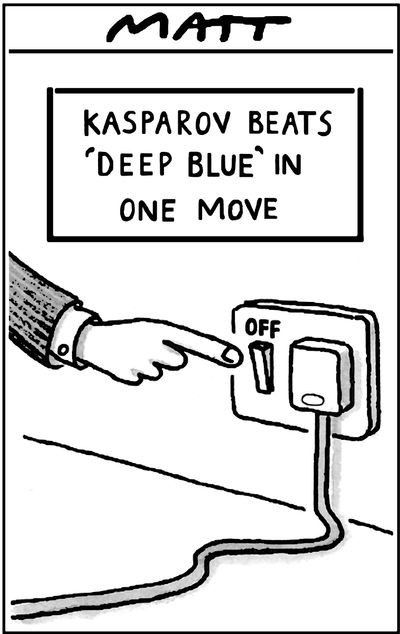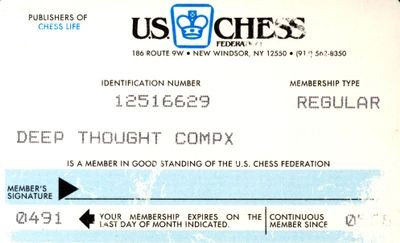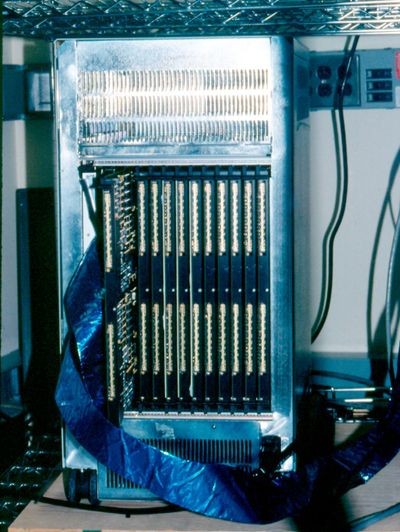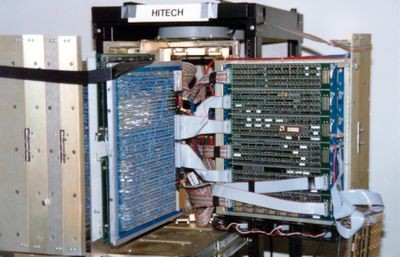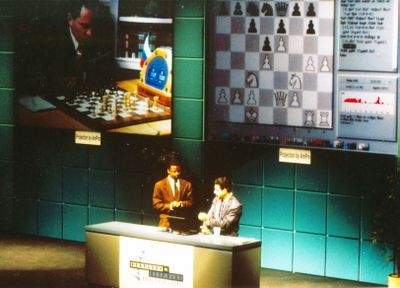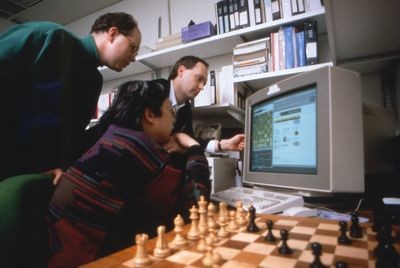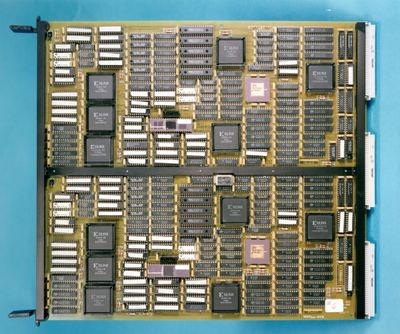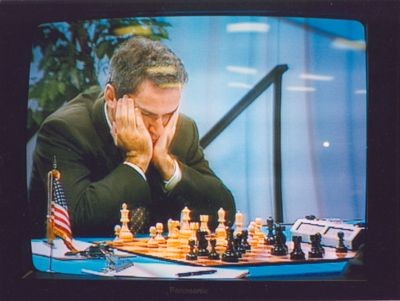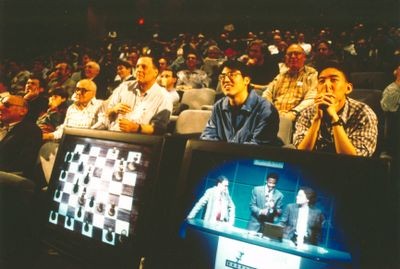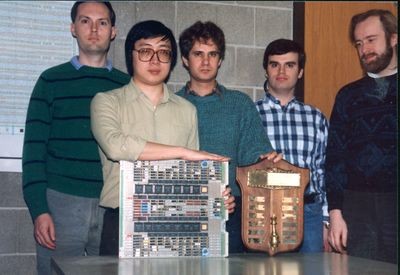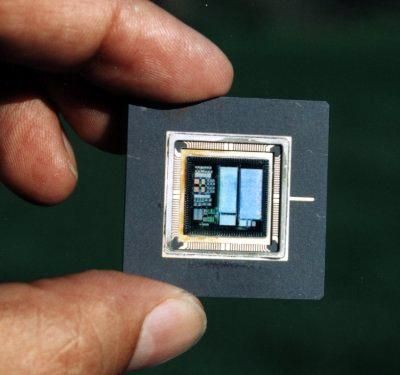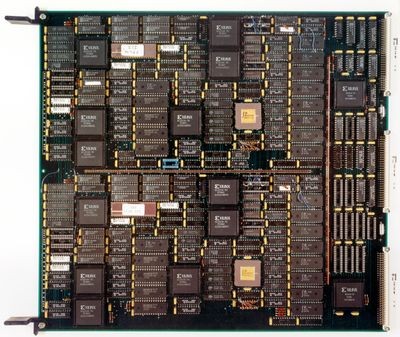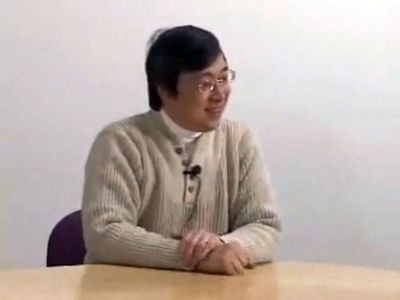Endgame
In 1978, International Master David Levy won a bet made ten years earlier that no computer would beat him. At the 1984 ACM conference, a panel of experts could not agree whether a computer would ever defeat the top human chess player. But after dramatic games in 1989 in which two widely-respected Grandmasters were defeated by Carnegie Mellon University’s Hitech and Deep Thought chess machines, the goal of defeating the World Chess Champion seemed within reach.
The recognition that would come if one did defeat the World Chess Champion got IBM interested in the challenge. Their development program in late 1989 resulted in a specialized chess computer called Deep Blue. When it beat Garry Kasparov in 1997, it was the first and only time a World Chess Champion was defeated by a computer.
At long last, the promise of the mythical Turk and the dream of the early computer pioneers had become real. Deep Blue defeated the best human chess player using large amounts of calculation. But was it a thinking machine? Is human thinking calculation of a sort that we do not yet understand?



